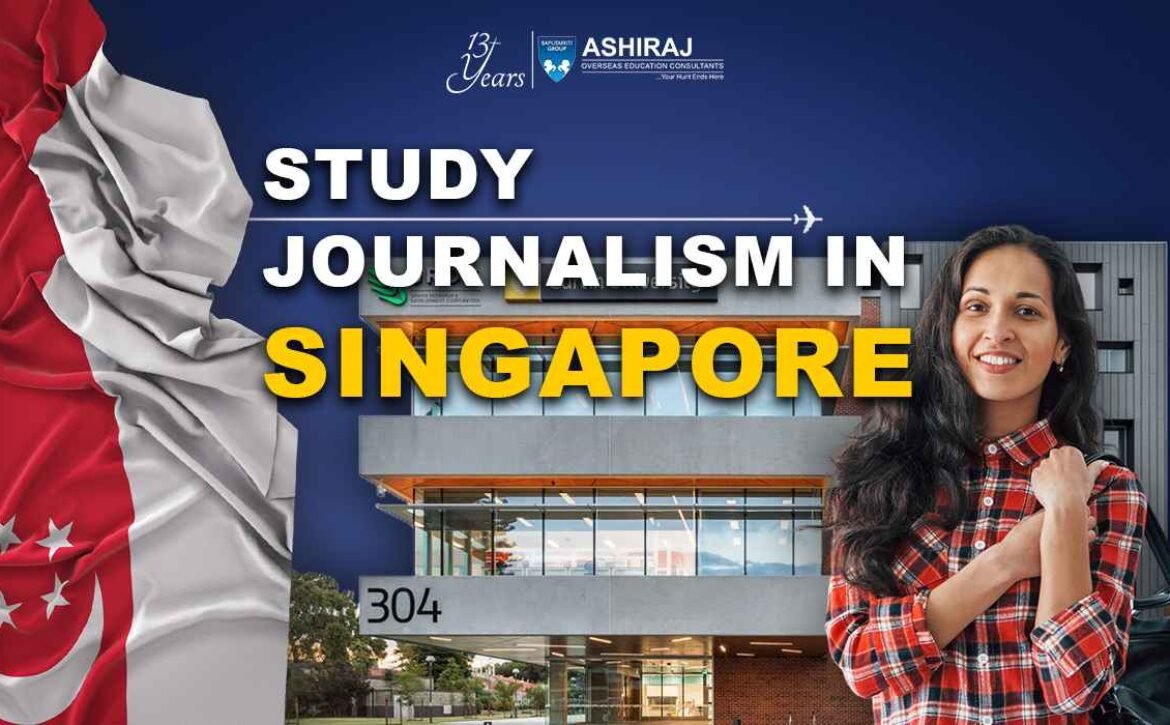
Journalism in Singapore
In the vibrant landscape of Southeast Asia, Journalism in Singapore stands as a beacon of integrity and innovation. Renowned for its commitment to accuracy and impartial reporting, Singaporean journalism embodies the nation’s multicultural ethos and its aspirations for excellence. Operating within a dynamic socio-political environment, Singaporean journalists navigate intricate narratives with precision, serving as both chroniclers of history and guardians of democratic principles. Through a blend of traditional and digital platforms, Journalism in Singapore remains at the forefront of regional discourse, shaping public opinion and fostering transparency in governance.
Journalism in Singapore thrives amidst a diverse media ecosystem, characterized by a harmonious blend of state-owned enterprises and independent outlets. Embracing technological advancements, Singaporean journalists harness the power of multimedia storytelling to engage audiences across demographics. As Singapore continues to assert its position as a global hub of commerce and culture, journalism remains a cornerstone of its identity, reflecting the nation’s unwavering dedication to free speech and ethical reporting.
Why to Study Journalism in Singapore?
- Global Reputation: Journalism in Singapore enjoys a stellar reputation worldwide for its commitment to accuracy, ethics, and professionalism. Studying here offers exposure to best practices in the field.
- Multicultural Environment: Singapore’s diverse cultural landscape provides a unique backdrop for journalism studies. Students have the opportunity to explore and understand various perspectives, enriching their reporting skills.
- Cutting-Edge Technology: Singapore is a leader in technological innovation. Journalism students benefit from access to state-of-the-art facilities and training in digital media, equipping them with skills relevant to the modern media landscape.
- Industry Connections: With a thriving media industry, studying journalism in Singapore opens doors to valuable industry connections. Students can intern at leading media organizations and build networks that facilitate career growth.
- Global Perspective: Singapore’s strategic location in Southeast Asia offers students a global perspective on journalism. They can cover stories with regional and international significance, broadening their understanding of global issues.
- Ethical Standards: Journalism in Singapore adheres to rigorous ethical standards, providing students with a strong foundation in responsible reporting practices.
- Career Opportunities: Graduates of journalism programs in Singapore are highly sought after by employers globally, thanks to the quality of education and the reputation of Singaporean journalism.
- Cultural Immersion: Studying journalism in Singapore offers the chance to immerse oneself in a vibrant cultural milieu, fostering personal growth and enriching the learning experience.
Top Universities to Study Journalism in Singapore
University | QS World University Rankings 2023 | Type of University | Average Annual Fees (SGD) | Programs Offered |
National University of Singapore (NUS) | 1st | Public | $9,000 – $12,000 | Bachelor of Communication Studies |
Master of Mass Communication | ||||
Nanyang Technological University (NTU) | 2nd | Public | $10,000 – $13,000 | Bachelor of Communication Studies |
Master of Mass Communication | ||||
Singapore Management University (SMU) | 4th | Public | $11,000 – $14,000 | Bachelor of Communication Management |
Master of Science in Communication Management | ||||
Singapore University of Social Sciences (SUSS) | 17th | Public | $8,000 – $11,000 | Bachelor of Communication |
Master of Mass Communication | ||||
SIM University (UniSIM) | Not Ranked | Private | $15,000 – $18,000 | Bachelor of Arts in Communication |
Master of Arts in Mass Communication |
Studying journalism in Singapore offers students a plethora of options, with several top-notch universities providing comprehensive programs tailored to meet industry demands. The National University of Singapore (NUS) tops the list, renowned for its Bachelor of Communication Studies and Master of Mass Communication programs. Following closely is Nanyang Technological University (NTU), offering similar programs of high caliber. Singapore Management University (SMU) and Singapore University of Social Sciences (SUSS) also feature prominently, with Bachelor and Master programs designed to equip students with the skills needed for success in the field of journalism. For those seeking a private institution, SIM University (UniSIM) offers competitive programs in communication and mass communication, albeit with slightly higher tuition fees. With such esteemed options available, aspiring journalists can embark on their educational journey in Singapore with confidence, knowing they are receiving top-tier instruction in this dynamic and evolving field.
Course Curriculum for Journalism in Singapore
- Foundational Courses: Journalism programs in Singapore typically start with foundational courses covering media history, ethics, and principles of journalism, ensuring students grasp the fundamental concepts of the profession.
- Multimedia Skills: Recognizing the importance of multimedia storytelling, courses often include training in digital media production, photojournalism, video editing, and social media management, equipping students with diverse skills for modern journalism.
- Specialized Reporting: Students delve into specialized reporting areas such as politics, business, health, and environment, gaining expertise in covering diverse beats and developing a deeper understanding of Singapore’s socio-political landscape.
- Internship Opportunities: Many programs offer internship opportunities at leading media organizations, allowing students to apply theoretical knowledge in real-world settings and gain valuable industry experience.
- Global Perspectives: Courses often incorporate modules on international journalism, encouraging students to explore global issues and perspectives, thereby broadening their understanding of journalism beyond Singapore’s borders.
- Ethics and Legal Issues: Given the importance of ethics and legal compliance in journalism, courses cover topics such as media law, defamation, privacy rights, and responsible reporting practices, ensuring graduates uphold the highest standards of integrity in their work.
- Capstone Projects: Programs typically culminate in capstone projects or final-year dissertations, where students demonstrate their research and reporting skills by tackling in-depth investigative projects or producing multimedia features, showcasing their readiness to enter the field of journalism in Singapore and beyond.
Eligibility Criteria & Admission Requirements for MS in Journalism in Singapore
- Language Proficiency: Applicants are required to demonstrate proficiency in English by submitting scores for either IELTS or TOEFL. The minimum scores typically range from 6.5 to 7.0 for IELTS and 90 to 100 for TOEFL.
- Standardized Tests: Some universities may require scores for either GRE or GMAT as part of the application process. Minimum scores vary depending on the institution but generally range from 310 to 320 for GRE and 600 to 700 for GMAT.
- Educational Background: Applicants should hold a bachelor’s degree from a recognized institution, preferably in a relevant field such as journalism, communications, or media studies.
- Passport & Student Visa: International students are required to possess a valid passport and obtain a student visa to study in Singapore. The visa application process typically requires proof of acceptance from a recognized institution and sufficient financial resources to support living expenses.
- Academic Certificates: Applicants must provide transcripts and certificates verifying their academic qualifications, including their bachelor’s degree and any relevant postgraduate qualifications.
- Work Experience: While not always mandatory, relevant work experience in journalism or related fields may strengthen an applicant’s candidacy, demonstrating practical skills and industry knowledge.
Table: Required Scores for Language Proficiency and Standardized Tests
Test | Minimum Score |
IELTS | 6.5 – 7.0 |
TOEFL | 90 – 100 |
GRE | 310 – 320 |
GMAT | 600 – 700 |
Ensuring compliance with these eligibility criteria is essential for prospective students aspiring to pursue journalism in Singapore, ensuring a smooth application process and entry into reputable institutions offering quality education in this dynamic field.
Documents Required for Studying Journalism in Singapore
- Passport: A valid passport is essential for international students applying to study journalism in Singapore. It serves as proof of identity and nationality throughout the application process and during their stay in the country.
- Letters of Recommendation (LOR): Two letters of recommendation from academic or professional sources are typically required. These letters attest to the applicant’s character, abilities, and suitability for the journalism program.
- Statement of Purpose (SOP): The SOP is a personal essay outlining the applicant’s motivations, career goals, and reasons for choosing to study journalism in Singapore. It provides insight into the applicant’s aspirations and helps admissions committees assess their suitability for the program.
- Curriculum Vitae (CV): A comprehensive CV detailing the applicant’s academic background, work experience, achievements, and extracurricular activities is required. It provides a snapshot of the applicant’s qualifications and accomplishments.
- Official High School Transcripts and Educational Certificates: Applicants must submit transcripts and certificates from their high school or equivalent institution, demonstrating their academic achievements and qualifications for higher education.
- Work Experience Certificate: If applicable, a work experience certificate detailing the applicant’s professional experience in journalism or related fields may be required. It serves to validate the applicant’s practical skills and industry knowledge.
- Proof of Financial Resources: Applicants must provide evidence of sufficient financial resources to cover tuition fees, living expenses, and other related costs for the duration of their journalism program in Singapore. This may include bank statements, scholarship awards, or sponsorship letters.
Ensuring the timely and accurate submission of these documents is crucial for prospective students applying to study journalism in Singapore. Adhering to the specified requirements enhances the chances of a successful application and admission to reputable institutions offering quality education in journalism.
Admission Process for Journalism in Singapore
1: Research Programs: Begin by researching journalism programs offered by universities in Singapore. Consider factors such as curriculum, faculty expertise, and campus facilities to find the best fit for your academic and career goals in Journalism in Singapore.
2: Check Eligibility: Review the eligibility criteria for each program, including academic requirements, language proficiency exams (IELTS or TOEFL), and standardized test scores (GRE or GMAT). Ensure you meet all the prerequisites before proceeding with the application.
3: Prepare Documents: Gather the necessary documents for your application, including transcripts, certificates, letters of recommendation (LOR), statement of purpose (SOP), curriculum vitae (CV), passport, and proof of financial resources. Verify that all documents are accurate and up to date.
4: Complete Online Application: Most universities in Singapore offer online application portals. Fill out the application form carefully, providing accurate personal and academic information. Upload all required documents according to the specified format and guidelines.
5: Pay Application Fee: Pay the application fee as required by the university. Keep a record of the payment transaction for future reference.
6: Submit Application: Once you have completed the application form and uploaded all necessary documents, submit your application before the deadline. Ensure that you receive a confirmation of submission.
7: Await Admission Decision: After submitting your application, wait for the university to review your materials. Admission decisions may take several weeks to months, depending on the university’s application review process.
8: Acceptance and Enrollment: If accepted, you will receive an offer of admission from the university. Follow the instructions provided to accept the offer and complete the enrollment process, including payment of tuition fees and securing a student visa if applicable.
Following these steps diligently will streamline the admission process for studying Journalism in Singapore, setting you on the path towards a rewarding academic journey in the field of journalism.
“Education is the most powerful weapon which you can use to change the world.”
Nelson Mandela
Cost of Journalism Course in Singapore
- Tuition Fees: The cost of tuition for journalism programs in Singapore varies depending on the university and the level of study. On average, undergraduate tuition fees range from SGD 9,000 to SGD 14,000 per academic year, while postgraduate fees can range from SGD 10,000 to SGD 18,000 per year.
- Living Expenses: Singapore is known for its high standard of living, and students should budget for accommodation, food, transportation, and other personal expenses. On average, monthly living expenses for students in Singapore can range from SGD 800 to SGD 1,500, depending on lifestyle choices and accommodation preferences.
- Additional Costs: In addition to tuition and living expenses, students may need to budget for textbooks, study materials, health insurance, visa fees (if applicable), and extracurricular activities.
- Scholarship Opportunities: Some universities in Singapore offer scholarships and financial aid to international students, helping to offset the cost of studying journalism. Students should research scholarship opportunities and eligibility criteria to determine if they qualify for financial assistance.
- Part-Time Work: International students in Singapore are permitted to work part-time during their studies, which can help supplement their income and cover expenses. However, it’s essential to balance work commitments with academic responsibilities.
Understanding the cost of studying journalism in Singapore is crucial for prospective students planning their education abroad. By budgeting effectively and exploring financial aid options, students can make informed decisions and pursue their academic goals in Journalism in Singapore without financial strain.
Scholarships for Journalism Courses in Singapore
Scholarship Name | Amount | Application Deadline |
Singapore International Graduate Award (SINGA) | Full tuition fees, monthly stipend, and other benefits | June 1st (annually) |
Nanyang President’s Graduate Scholarship (NPGS) | Full tuition fees, monthly stipend, and other benefits | January 31st (annually) |
Lee Kong Chian Graduate Scholarship (LKCGS) | Full tuition fees, monthly stipend, and other benefits | January 31st (annually) |
ASTAR Graduate Scholarship (AGS) | Full tuition fees, monthly stipend, and other benefits | March 1st (annually) |
Ministry of Education (MOE) Tuition Grant | Up to 70% subsidy on tuition fees | Varies by institution |
Scholarships for journalism in Singapore offer financial assistance to deserving students pursuing undergraduate or postgraduate degrees in journalism or related fields. The Singapore International Graduate Award (SINGA) provides full tuition fees, a monthly stipend, and other benefits to international students pursuing a Ph.D. at participating universities. The Nanyang President’s Graduate Scholarship (NPGS), Lee Kong Chian Graduate Scholarship (LKCGS), and ASTAR Graduate Scholarship (AGS) offer similar benefits to outstanding graduate students. Application deadlines for these scholarships typically fall between January and June annually, so students should plan accordingly and submit their applications before the deadline to be considered for financial aid. Additionally, the Ministry of Education (MOE) Tuition Grant provides up to 70% subsidy on tuition fees for eligible undergraduate students, further easing the financial burden of studying journalism in Singapore.
Career Opportunities After Journalism in Singapore
Job Profile | Average Salary (SGD) |
News Reporter/Journalist | 45,000 – 60,000 |
Multimedia Journalist | 50,000 – 65,000 |
Broadcast Journalist | 55,000 – 70,000 |
Editor | 60,000 – 75,000 |
Digital Content Producer | 55,000 – 70,000 |
Public Relations Specialist | 60,000 – 80,000 |
Communications Manager | 70,000 – 90,000 |
Journalism in Singapore opens doors to a diverse range of career opportunities across various media platforms and industries. News reporters and journalists play a crucial role in gathering and disseminating information, with salaries ranging from SGD 45,000 to SGD 60,000 annually. Multimedia journalists who specialize in producing content for digital platforms can earn between SGD 50,000 to SGD 65,000 per year. Broadcast journalists, responsible for reporting news through television or radio, typically earn salaries ranging from SGD 55,000 to SGD 70,000 annually. Editors, who oversee content production and ensure editorial standards, can earn between SGD 60,000 to SGD 75,000 annually. Digital content producers, involved in creating and managing online content, can expect salaries ranging from SGD 55,000 to SGD 70,000 annually. Public relations specialists and communications managers, who manage organizational communications and media relations, can earn between SGD 60,000 to SGD 90,000 annually, depending on experience and industry. With a journalism degree in Singapore, graduates can pursue rewarding careers in media, communication, and public relations, contributing to the vibrant media landscape of the nation.
Frequently Asked Questions About Journalism in Singapore
Some prominent universities offering journalism programs in Singapore include the National University of Singapore (NUS), Nanyang Technological University (NTU), and Singapore Management University (SMU).
Eligibility criteria typically include a bachelor’s degree, language proficiency (IELTS or TOEFL), standardized test scores (GRE or GMAT), and submission of required documents such as transcripts, recommendation letters, and a statement of purpose.
Yes, several scholarships are available for journalism students in Singapore, including the Singapore International Graduate Award (SINGA), Nanyang President’s Graduate Scholarship (NPGS), and Ministry of Education (MOE) Tuition Grant.
The cost varies depending on the university and program, but on average, tuition fees range from SGD 9,000 to SGD 18,000 per year for undergraduate and postgraduate programs.
Graduates can pursue careers as news reporters, multimedia journalists, editors, broadcast journalists, digital content producers, public relations specialists, and communications managers, among others.
Yes, international students in Singapore are permitted to work part-time during their studies, typically up to 16 hours per week during term time and full-time during vacation periods.
The admission process involves researching programs, checking eligibility criteria, preparing documents, completing the online application, paying the application fee, submitting the application, awaiting admission decision, and accepting the offer if accepted.
The duration varies depending on the level of study and program structure. Generally, undergraduate programs take three to four years to complete, while postgraduate programs typically take one to two years.
Yes, many journalism programs in Singapore offer internship opportunities at leading media organizations, providing students with practical experience and industry exposure.
Yes, there is a demand for journalists in Singapore, with opportunities available in traditional media outlets, digital platforms, corporate communications, public relations, and other related fields.




